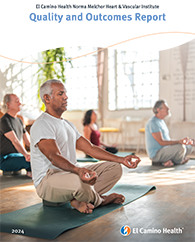Hypertension
Blood pressure refers to the force of blood pushing against the walls of your arteries as your heart pumps blood. The pressure is the result of two forces: systolic — the pressure when your heart beats — and diastolic, the pressure when your heart is at rest between beats. Your blood pressure is represented as the systolic number before the diastolic, such as 120/80 (normal blood pressure for an adult).
Your arteries are made of muscle and semi-flexible tissue that expands when your heart pumps blood. The more forcefully the blood pumps, the more your arteries have to stretch to allow blood flow. Over time, if the force is often high, your artery walls are stretched beyond their limit and can become damaged. The damage can lead to:
- Vascular weakness. Weakened areas are more prone to rupture and can lead to strokes and aneurysms.
- Vascular tearing and scarring. Scar tissue can trap cholesterol and blood cells, which can cause blood clots and plaque — a fatty buildup — to block your arteries.
When arteries are blocked by plaque they become less elastic, forcing your heart to work harder to pump blood. Over time, this can damage your heart muscle and valves and lead to heart attack and heart failure.
Prevention
There are a number of lifestyle habits you can adopt to prevent high blood pressure, which will also lower your risk of heart disease. Practice these heart-healthy habits to maintain good health:
- Follow a healthy diet . Opt for a variety of fresh vegetables and fruits, whole grains, lean meats and low-fat dairy products. Limit your intake of foods that are high in saturated and trans fats, cholesterol, salt and added sugar.
- Control your weight and exercise regularly. If you're overweight, talk to your doctor about a diet and exercise program that's right for you. Maintaining a healthy weight and being physically active will improve your overall health and lower your risk of all types of heart disease.
- If you smoke, quit. Smoking damages blood vessels and increases your risk of cardiovascular and other types of disease. Also, try to avoid second-hand smoke.
- Learn to manage stress. Learning how to cope with stress can not only lower your risk of hypertension and other conditions, but help you lead a healthier, happier life.
Need help eating right, losing weight or managing stress? The Norma Melchor Heart & Vascular Institute at El Camino Health offers a variety of classes and programs that can help you prevent disease and maintain good health — including services to help you quit smoking.
Diagnosis and Treatment
Known as the silent killer, hypertension doesn’t have any signs or symptoms. It’s diagnosed with a simple blood pressure test in your doctor’s office using a blood pressure cuff and a gauge or stethoscope. If your blood pressure is 140/90 or higher over time, you have high blood pressure.
To treat high blood pressure, your doctor will recommend lifestyle modifications — the same heart-healthy behaviors used to prevent it — and in some cases, medications. Blood pressure medicines can remove extra fluid and salt from your body to lower blood pressure, slow down your heartbeat or relax or widen blood vessels. Depending on your condition, your doctor may use a combination of medicines as treatment.
